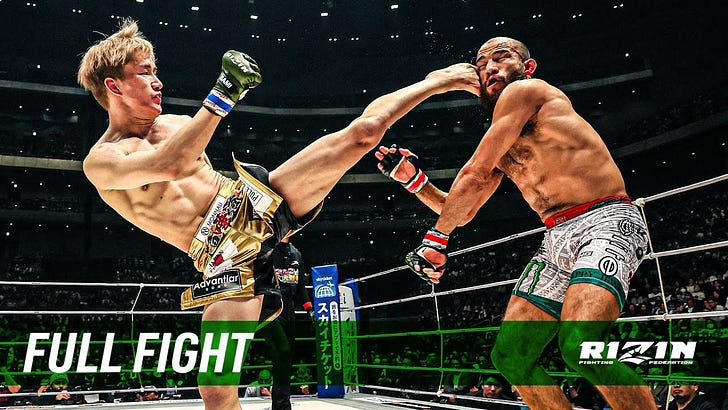Kai Asakura can be UFC's golden goose...
...if the promotion plays their cards right at UFC 310 in Las Vegas.
The ticket sales might not be thunderous for UFC 310 at T-Mobile Arena but the UFC has a lot riding on the line with the signing of recent RIZIN champion Kai Asakura.
There’s a reason Mr. Asakura is in the main event slot of a major fight card: UFC is currently lacking in star power. He may not have star power right now but a great showing at UFC 310 cou…
Keep reading with a 7-day free trial
Subscribe to The MMA Draw Newsletter to keep reading this post and get 7 days of free access to the full post archives.



